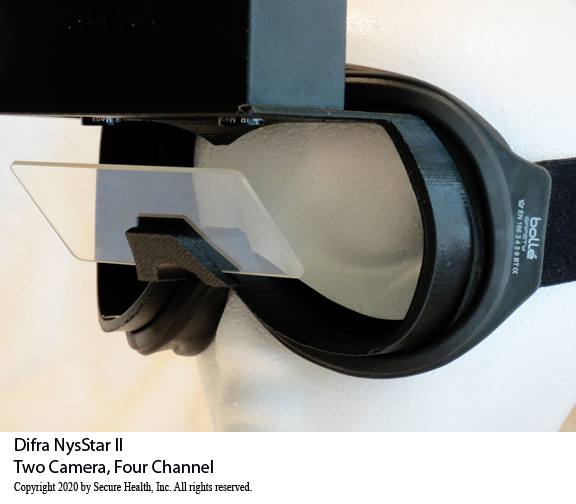The Right Choice, One or Two Camera VNG?

The Right Choice, One or Two Camera?
"Do I need a monocular (one camera) or binocular (two camera) VNG device?" Or "Is the binocular VNG what I need for my clinic?" These are two questions we are frequently asked by potential clients who are expanding into videonystagmography (VNG).
Monocular VNG for Vestibular Disorders
The simple answer is, if you looking to add VNG to diagnose and treat balance disorders, vestibular disorders or for falls prevention, then a monocular VNG is likely your best choice.
Binocular VNG for Specialty Cases
If you are a specialized vestibular clinic or doing or planning to work with personal injury (PI) cases, handle concussion, mTBI (mild traumatic brain injury) or TBI (traumatic brain injury), the binocular VNG is your only choice.
Essentially, the binocular VNG tracks both eyes simultaneously with a report output showing both eyes during all tests. The ability to record both eyes at the same time is critical in the special cases of P/I, concussion, mTBI, and TBI.
Why Use Binocular VNG for Specialty Cases?
I asked Troy D. Hale, Au.D, FAAA, Assistant Professor at A.T. Still University to explain clinically why binocular VNG is needed for these special cases. Dr. Hale explained it as follows.
"The primary advantage to a binocular recording rather than monocular is that with monocular you can often miss disconjugate eye movements (i.e., when the eyes are not moving synchronously together).
"This would be most common with paralyses of one or more of the extraocular eye muscles or with lesions affecting the medial longitudinal fasciculus which is the major pathway that pairs the eyes together for versional horizontal deviations. Often times you may also have one eye that captures or records poorer than the other such as with individuals who have had prior eye surgeries in which case having dual recording is also more beneficial."
So in other words, if it's important for you to simultaneously track both eyes to see how well they work together, go with the binocular VNG (NysStar II). If that isn't as important to you, the monocular VNG (HeadStar) device is the best choice.
Reimbursement is the Same for Monocular or Binocular
One other important point to remember, a binocular VNG does not reimburse any higher than a monocular VNG device. The same billable CPT codes and units apply for both systems. That's a good reason to make sure you choose the correct VNG configuration that matches your intended use because the cost to purchase a binocular VNG device is higher compared to the monocular VNG.
Our Monocular Can Seamlessly Upgrade to Binocular
Finally, if you purchase a monocular VNG from us today and later decide a binocular VNG is more appropriate for your practice, we can upgrade your monocular (Headstar) VNG to a binocular (NysStar II) VNG for a reasonable upgrade fee.
If the opportunity presents itself for you to expand your patient services that demands a binocular VNG, you don't have to pass up the opportunity or start over and purchase an entirely new VNG device. We will assist you to professionally and seamlessly complete the upgrade.
As always, if you have other questions about our full line of VNG products, please contact me.
--Dan Scherer, CEO
Secure Health, Inc.
260.804.4041 or [email protected]
